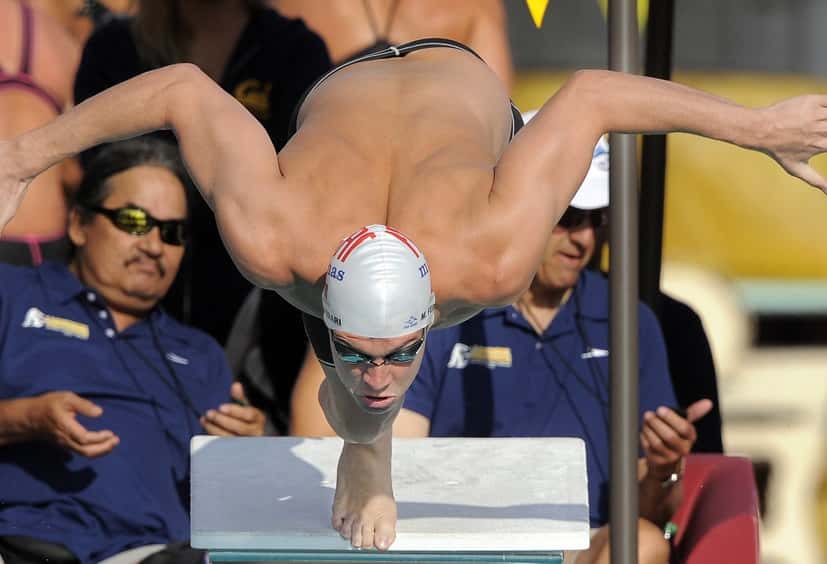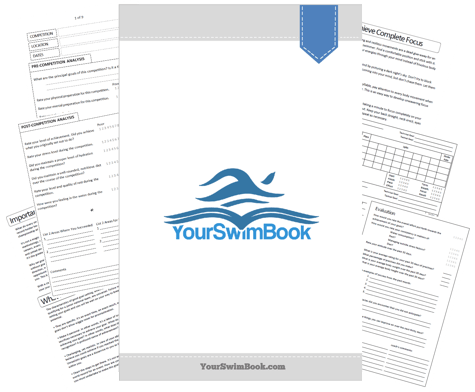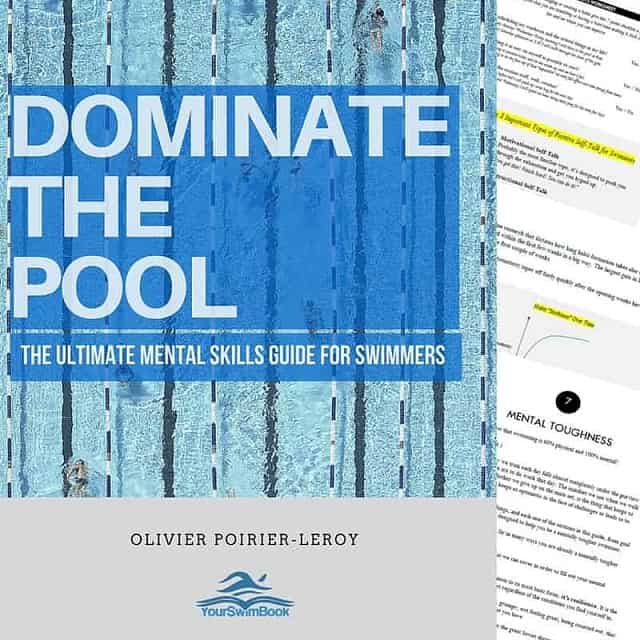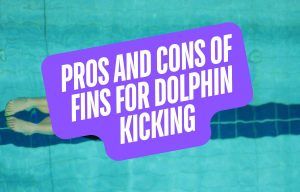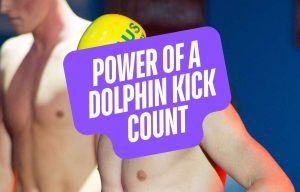Starting out your own training journal? Here are 6 pro tips for making the most of this powerful tool.
The log book is one of the most powerful weapons swimmers can unleash in order to get more from their training.
The benefits of using a log book have been proven and are well known: it will help you stay motivated, keep you accountable, and better plan and chart progression and improvement.
Here are some tips for how to make the most of your log book so that you can maximize the results for time spent writing out your sessions at the pool.
1. Write out the results ASAP.
We all love to think that our memory is pristine, perfect, and our recall flawless. As a result, we don’t fret about writing things down right away when it comes to logging our practices and training sessions.
Writing down your workouts as soon as you have completed them will insure that you have an accurate history on hand. When you consider how much there is to remember (sets, reps, intervals, etc etc) it’s understandable that our memory can get a little fuzzy and muddled.
The more accurate your training history, the clearer the notes from your workouts, the better you can connect the dots on what is working and what isn’t in your swimming.
2. Use it to plan your workouts.
One of the most underrated aspects of keeping a workout log book is the ability to plan out your sessions ahead of time. Intuitively this makes sense—whenever you plan what you are going to do you tend to be more ambitious with your workouts.
When we walk out onto the pool deck with clear and specific things to work on in the pool—“I’m going to dolphin kick one extra time off every wall!”—then it gives us a sense of ownership of our swimming and training.
You can go to the pool and react to what is happening, or you can go there with a determination and accountability that will keep your workouts engaging and motivating.
3. Track lifestyle stuff.
Want to take your results in the pool to the next level? Start tracking the influencing factors outside of the pool.
How much you are sleeping, how well you are eating, and how stressed you are all play a massive role in determining how our workouts are going to go that day.
The connection isn’t always as clear as we think it should be—seeing that you only slept for four hours last night, and the resulting crap workout you subsequently had—won’t necessarily fix those bad sleeping habits, but will give you the incentive and self-awareness to make changes.
 Hey Coaches: Did you know that we do custom branding with YourSwimBook? We can put your club logo on the cover of YourSwimBook at no additional charge. And of course, with team orders comes team discounts! Click here for more info.
Hey Coaches: Did you know that we do custom branding with YourSwimBook? We can put your club logo on the cover of YourSwimBook at no additional charge. And of course, with team orders comes team discounts! Click here for more info.4. Don’t go overboard with details.
Whenever working with a new swimmer I ask them to journal their workouts for a couple weeks. Often, they will come back with a thick binder full of excruciating detail.
While having a metric butt-ton of information on every aspect of your swimming is helpful, it makes the habit of journaling your workouts harder to sustain.
Stick to measuring the high impact stuff to start out with, and as you develop your own journaling style you will see what works best for you and your swim workouts.
5. Reflect.
Going beyond your workout can be helpful in managing stress and gaining some much-needed perspective in turbulent times of training where you maybe aren’t seeing the kind of improvement you are expecting.
I’ve always used my workout log to not only talk about the broader aspects of my training (where I am in relation to upcoming competitions, changes I would like to make to my regimen in the future, how I felt in the water that day, etc), but let mentally loose on stuff that might be bothering me as well.
Having a few moments to empty out your brain, whether it’s listing a couple quick things you are grateful for, helps you to keep perspective during those long bouts of training when you aren’t seeing results as fast as you might like.
6. Track your mental training.
It’s been said that swimming is 50% physical, 70% mental. (Or something along those lines.)
The mental game of the sport is wide-ranging, but there is one thing in particular that you should be tracking on a daily basis that will have massive bang for buck for your swimming, and that is your self-talk.
The way that we converse with ourselves has an impact so large on our swimming that it is hard to overstate. Think about it: The way we talk to ourselves direct our actions.
If you tell yourself you can’t do something, what do you suppose the likelihood is that you are going to do it? Conversely, if you tell yourself that you can do something, at the very least you will give it an honest attempt.
Making a couple quick notes on how your self-talk went during practice will give you a critical insight into how powerful and pervasive this aspect of our mindset is, and this awareness can be the ignition for more positive self-talk in practice (and faster swimming as a result).
Ready to Take Your Swimming to the Next Level?
YourSwimBook started as a log book, yes, but it has grown to be so much more.
Each copy features a complete goal setting section to cover your competition goals, training goals, and even weekly evaluation sheets to help keep you on track.
In case that wasn’t enough, each copy of YourSwimBook also comes with our exclusive mental training skills guide for competitive swimmers:
It’s 76-pages of action packed tips, worksheets and research on mastering the one thing you absolutely need for success in the water—your mindset.
YourSwimBook isn’t for everyone.
But if you want better practices, more motivation, and a proven way to help you get closer to achieving your goals in the pool then ever before, than it might just be for you.
Click here to learn more about how YourSwimBook will help you conquer the pool this season.

